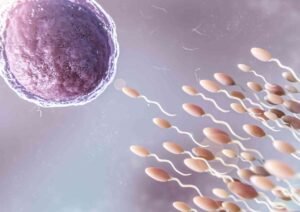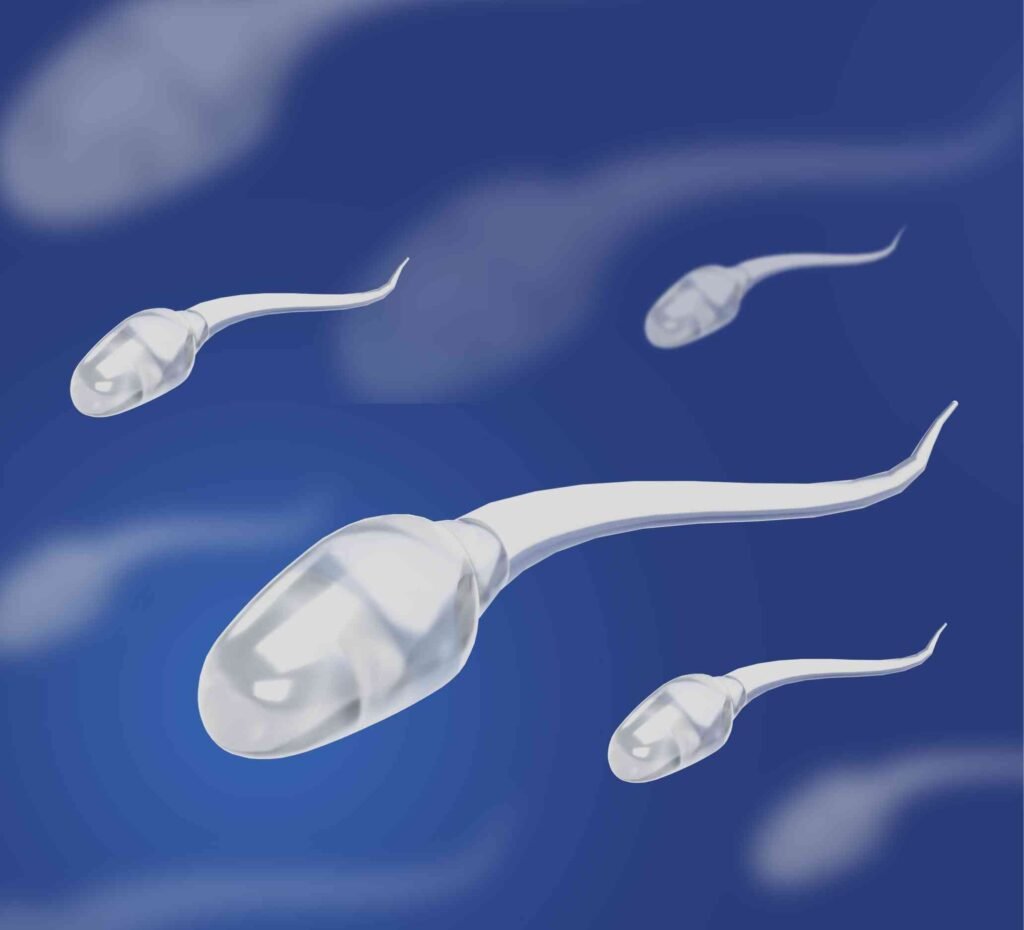Sperm DNA Fragmentation Index and Male Fertility
When couples struggle with infertility, the conversation often circles around egg quality, ovulation, and female reproductive health. But did you know that male fertility plays a role in nearly half of all cases of infertility? Traditionally, semen analysis—looking at sperm count, motility, and shape—has been the cornerstone of evaluating male fertility. However, research has shown that even men with “normal” semen parameters can still face challenges in conceiving. This is where the Sperm DNA Fragmentation Index (DFI) comes in as a more advanced and telling marker.
In this blog, we’ll take a deep dive into what the Sperm DNA Fragmentation Index is, how it impacts fertility, the science behind testing, lifestyle factors, treatment options, and practical steps for men trying to improve their reproductive health.

Understanding the Sperm DNA Fragmentation Index
The Sperm DNA Fragmentation Index refers to the percentage of sperm in a sample that carries breaks or damage in its DNA strands. Unlike the visible structure of sperm (head, midpiece, and tail), DNA fragmentation is hidden damage at the molecular level.
Think of sperm DNA as the instruction manual for creating a healthy embryo. If too many “pages” are torn, missing, or scrambled, even a sperm that looks normal under the microscope may not deliver viable genetic material to the egg. That’s why DFI testing provides a clearer picture of sperm health beyond routine semen analysis.
A low Sperm DNA Fragmentation Index generally means that most sperm in the sample carry intact DNA, which increases the chances of natural conception or success with assisted reproductive technologies (ART) like IVF. A high DFI, on the other hand, is associated with reduced fertility, miscarriages, and even failed ART cycles.
Why Does Sperm DNA Fragmentation Happen?
Sperm DNA fragmentation can be caused by a variety of biological and lifestyle factors. Some of the most common include:
- Oxidative Stress –
When there’s an imbalance between free radicals and antioxidants in the body, sperm DNA is especially vulnerable. This is often linked to smoking, pollution, alcohol, or poor diet.
2. Infections –
Chronic or untreated genital tract infections can increase reactive oxygen species, damaging sperm DNA.
3. Varicocele –
Enlarged veins in the scrotum raise testicular temperature and can impair sperm production and DNA integrity.

4. Advanced Age –
As men age, the natural repair mechanisms for DNA damage in sperm become less efficient.
5. Exposure to Toxins –
Pesticides, heavy metals, radiation, and industrial chemicals can contribute to DNA breaks.
6. Lifestyle Choices –
Sedentary habits, poor sleep, and stress can indirectly influence sperm health.
It’s worth noting that some level of DNA fragmentation is normal. The problem arises when the Sperm DNA Fragmentation Index climbs above thresholds linked to reduced fertility.
The Impact of High Sperm DNA Fragmentation on Fertility
So, what does a high Sperm DNA Fragmentation Index actually mean in practice? Let’s look at the consequences:
- Reduced Natural Conception: Even if sperm count and motility are normal, DNA damage can prevent successful fertilization or healthy embryo development.
- Increased Risk of Miscarriage: Damaged DNA can still fertilize an egg, but embryos formed may fail to implant or may miscarry in early pregnancy.
- Lower IVF Success Rates: Studies show that high sperm DNA fragmentation is linked with lower pregnancy rates in conventional IVF cycles.
- ICSI Outcomes: While Intracytoplasmic Sperm Injection (ICSI) can bypass some sperm defects, severe DNA fragmentation still reduces success rates and may affect embryo quality.
- Potential Long-Term Effects: Emerging research suggests that children conceived from sperm with high DNA fragmentation may face increased health risks, although more studies are needed.

How Is the Sperm DNA Fragmentation Index Measured?
There are several laboratory techniques used to assess sperm DNA integrity. Some of the commonly used methods include:
- Sperm Chromatin Structure Assay (SCSA) – Measures the susceptibility of sperm DNA to denaturation.
- TUNEL Assay (Terminal deoxynucleotidyl transferase dUTP nick end labeling) – Directly labels DNA breaks for visualization.
- Comet Assay – Uses electrophoresis to show DNA migration patterns, forming a comet-like image.
- Sperm Chromatin Dispersion (SCD) Test – Evaluates sperm with fragmented DNA based on halo size after denaturation.
Each test has its pros and cons, but together they provide valuable information beyond standard semen analysis. Your fertility specialist will recommend the best option based on your case.
When Should Men Consider DFI Testing?
Not every couple needs DFI testing right away, but it’s highly recommended in certain situations:
- Unexplained infertility after normal semen analysis.
- Repeated IVF or ICSI failures.
- Recurrent pregnancy loss.
- Male partners over 40 years of age.
- History of lifestyle risk factors such as smoking, heavy alcohol use, or toxin exposure.
- Varicocele or genital tract infections.
By identifying hidden sperm DNA issues, couples and doctors can make more informed choices about treatment strategies.

Improving the Sperm DNA Fragmentation Index Naturally
The good news is that lifestyle changes and medical interventions can lower sperm DNA fragmentation levels. While results vary, here are evidence-backed strategies:
1. Antioxidant-Rich Diet
Nutrients like vitamin C, vitamin E, zinc, selenium, and coenzyme Q10 play a key role in neutralizing oxidative stress. A diet rich in colorful fruits, leafy greens, nuts, seeds, and fish can help repair and protect sperm DNA.
2. Quit Smoking and Limit Alcohol
Both habits directly increase oxidative stress and DNA breaks. Quitting can significantly improve sperm quality over time.
3. Maintain a Healthy Weight
Obesity is linked to hormonal imbalances, oxidative stress, and poor sperm function. Even modest weight loss can improve fertility markers.
4. Exercise, but in Moderation
Regular activity boosts circulation and hormonal balance, but excessive intense exercise can cause oxidative stress. Aim for balanced routines like walking, swimming, or yoga.
5. Manage Stress and Sleep
High stress releases cortisol, which disrupts testosterone production. Prioritizing mental health, mindfulness practices, and 7–8 hours of sleep can support sperm health.

6. Medical Treatments
a. Varicocelectomy: Surgical repair of varicocele has been shown to reduce DFI in many men.
b. Antibiotic Therapy: Treating infections can lower sperm DNA damage.
c. Lifestyle Supplements: Fertility specialists may recommend targeted antioxidant supplements to speed recovery.
Assisted Reproduction and High DFI
For couples pursuing assisted reproductive technologies, high Sperm DNA Fragmentation Index results can influence treatment choices. Options may include:
- ICSI with Testicular Sperm: Testicular sperm often show lower DNA fragmentation compared to ejaculated sperm. Some clinics use testicular sperm extraction (TESE) to improve outcomes.
- Sperm Selection Techniques: Advanced methods like Magnetic Activated Cell Sorting (MACS) or Physiological ICSI (PICSI) can help select sperm with better DNA integrity.
- Embryo Freezing: In cases where fragmentation may improve with treatment, freezing embryos created during IVF can buy time.
While these methods are not guaranteed, they can increase the odds for couples facing male-factor infertility.
Future Research and Innovations
The study of sperm DNA fragmentation is still evolving. Scientists are exploring new biomarkers, better diagnostic tools, and more refined sperm selection methods. Some areas of ongoing research include:
- The role of epigenetics in sperm DNA integrity.
- How paternal lifestyle before conception affects long-term child health.
- More accurate thresholds for Sperm DNA Fragmentation Index in predicting pregnancy outcomes.
- Integration of AI in sperm analysis for more precise testing.
As this field advances, couples can expect even more personalized and effective approaches to fertility treatment.
Final Thoughts
If you and your partner are struggling with infertility, don’t overlook the role of male reproductive health. A normal semen analysis doesn’t always tell the full story, and the Sperm DNA Fragmentation Index can be a powerful tool for uncovering hidden issues.
By working with a fertility specialist, embracing healthier lifestyle choices, and exploring targeted treatments, men can take proactive steps to improve their sperm DNA integrity. Fertility is a shared journey, and understanding DFI can bring you one step closer to the family you’re dreaming of.


